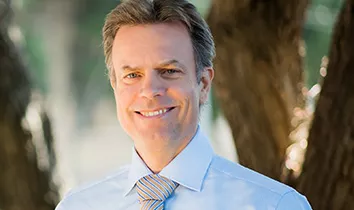About the Minimally Invasive Cardiac Surgery & Transcatheter Valve Program
About the Minimally Invasive Cardiac Surgery & Transcatheter Valve Program
Since 2016, UCSF has been at the forefront of providing comprehensive minimally invasive solutions for mitral valve repair and replacement, utilizing a small 4-6 cm incision. The advantages are substantial, encompassing reduced post-operative pain, shorter hospitalization, quicker resumption of normal activities, and enhanced cosmetic outcomes.
Minimally invasive approaches for valve surgery deviate from traditional open procedures, characterized by a lengthy chest incision and prolonged recovery. Employing smaller "keyhole" incisions, cardiac surgeons adeptly deploy long-handled instruments and three-dimensional endoscopes, affording a visual guide on a video screen during surgery. These incisions, placed between ribs, eliminate the need for sternum opening, ensuring a fully functional and stable chest for patients, particularly beneficial for frail and elderly individuals, facilitating accelerated rehabilitation and mobility, and are also notably viable for obese patients, who face elevated risks of infections and post-procedural mobility challenges.
In 2022, UCSF achieved a groundbreaking milestone by successfully conducting the inaugural robotically assisted mitral valve surgery. The utilization of robotic arms not only provides greater degrees of articulation compared to natural wrists but also enhances the surgical field tenfold in three dimensions. This technological advancement results in heightened precision during surgery, leading to expedited recovery for patients. The integration of a 3D camera and the enhanced mobility of instruments facilitates a meticulous evaluation of the valve, enabling surgeons to execute thorough and enduring repairs. The introduction of robotically assisted techniques represents an additional layer of precision in mitral valve surgery, exemplifying UCSF's commitment to advancing surgical excellence.
As the medical landscape evolves, cardiologists increasingly adopt invasive procedures, while cardiac surgeons lean towards less invasive techniques. This underscores the significance of a unified, specialized approach in developing individualized treatment plans, ensuring patient clarity and satisfaction.
Tobias Deuse, MD
Professor of Surgery
Division of Cardiac Surgery & Lung Transplantation
The Julien I.E. Hoffman, M.D. Endowed Chair in Cardiac Surgery
Director, Minimally-invasive Cardiac Surgery
Surgical Director, Transcatheter Valve Program

